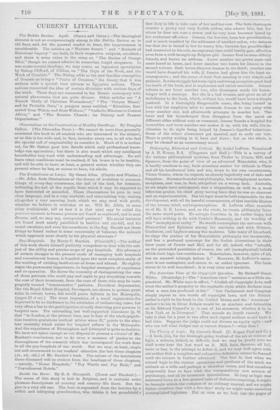Pay-Hospitals. By Henry C. Burdett. (Churchill.)—The author of this work
shows himself perfectly competent to deal with the sub- ject of the utility and precise scope of pay-hospitals. His advocacy of certain changes in the present mode of managing both hospitals and convalescent homes, is founded upon the most complete study of the working of existing institutions at home and abroad. He rightly urges the paramount importance, to hospital managers, of experience and co-operation. He shows the necessity of distinguishing the case of those patients who could pay and ought to pay something towards the cost of their treatment, from the case of those who may be more properly termed "remunerative" patients. Provident dispensaries, like the Royal Albert Hospital, Dovonport, are shown to possess groat value iu certain towns, but would prove failures in the Metropolis, (pages 15 et seq.) The mere imposition of a small registration-fee is proved to be no hindrance to the admission of undeserving oases, but very often a bar to the participation of really deserving poor persons in hospital care. The astounding, but well-supported statement (p. 6) that " in London, at the present time, one in four of the whole popula- tion receives gratuitous medical advice when ill," points to the abso- lute necessity which exists for hospital reform in the Metropolis. And the experience of Birmingham and Liverpool is quite as decisive. Wo have not space enough at our disposal to present a résumé of Mr. Burdett's couclusions, nor to do even a measure of justice to the thoroughness of the research which has investigated the work done in all the pay-hospitals of the world. But wo may, at least, single out and recommend to our readers' attention the last three chapters (xi., xii., xiii.) of Mr. Burdett's book. The nature of the institutions there discussed will be evident from the headings of these chapters, —namely, "Homo Hospitals," "Pay Wards and Pay Beds," and "Convalescent Hotels."


































 Previous page
Previous page